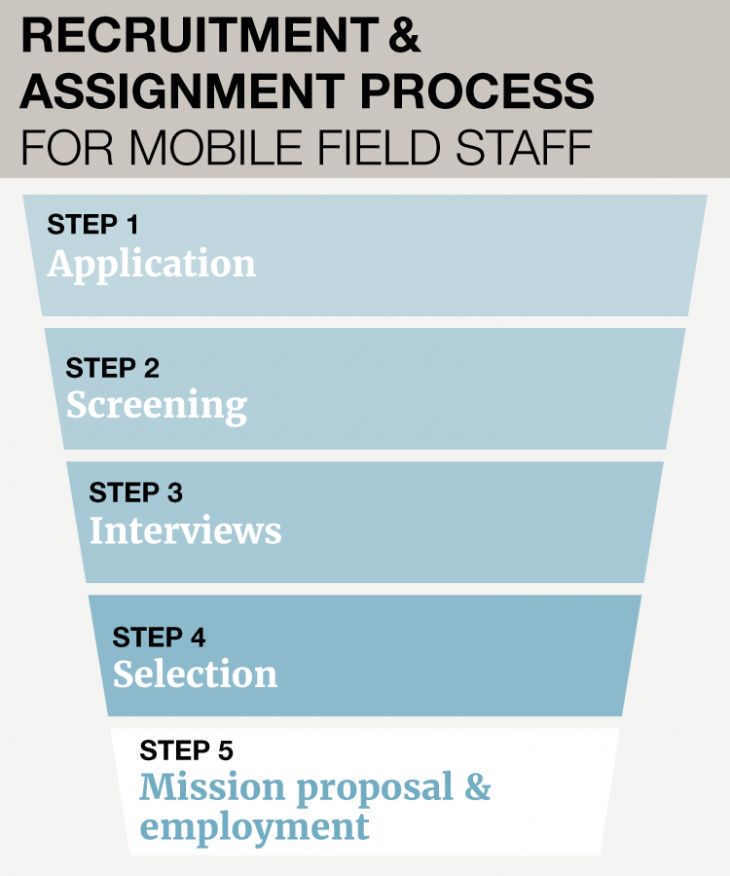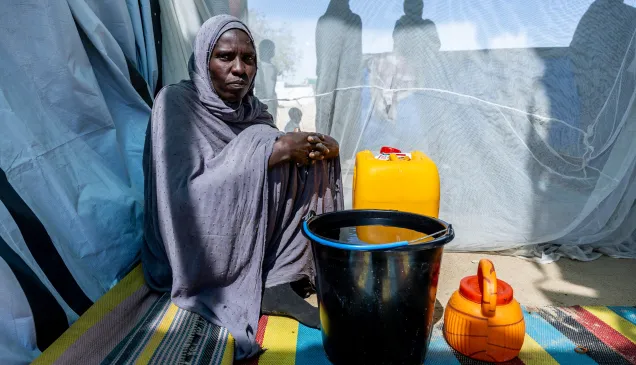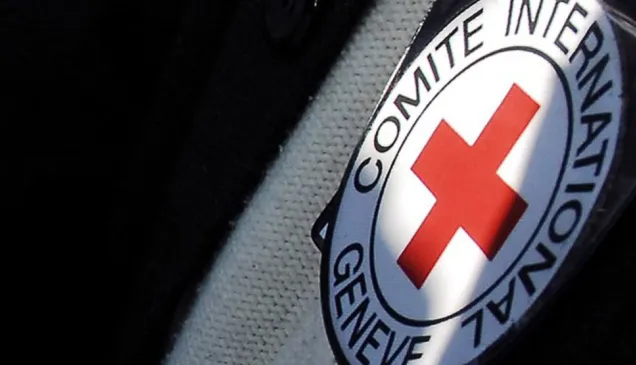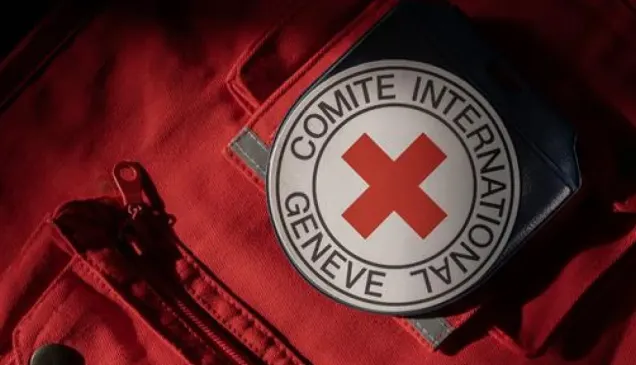Mobile field staff
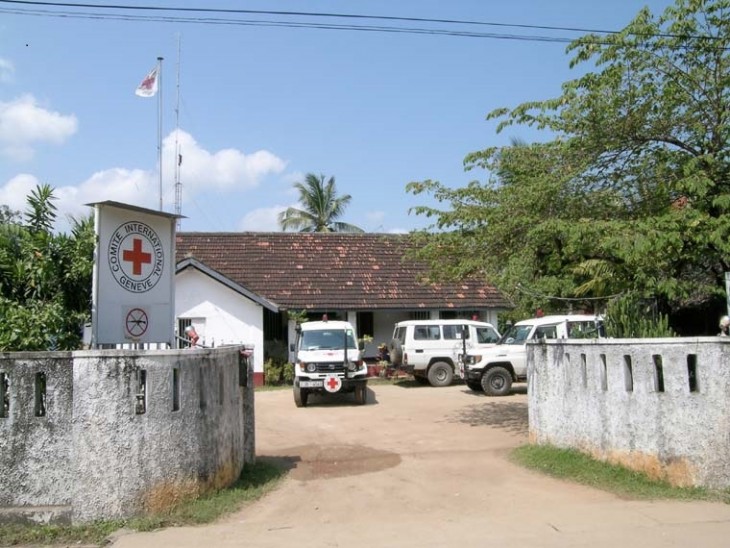
This page provides information about the recruitment, deployment and general working conditions of mobile field staff on a Geneva-based contract. We will discuss the specific terms and conditions at the assignment-proposal stage.
What is a talent pool?
A talent pool is a group that the ICRC has put together of professionals with related expertise and experience (e.g. we have a talent pool of logisticians, of engineers, of health workers, etc.). Most mobile field staff are put into talent pools when they are hired. We can then tap into these pools to send staff on assignment where they are most needed.
That is why most mobile positions in the field do not have application deadlines and the location given is "Worldwide". If you apply for a position where the location is specified, you will still join the relevant talent pool, so you can be considered for future assignments elsewhere.
When I join a talent pool, will I definitely go somewhere on assignment?
When you are hired for a particular talent pool, it means that we have selected your profile as suitable for a field assignment. As our operational needs change all the time, we need to ensure we have "the right people in the right place at the right time". So, we do our best to match your profile to the requirements of the position. We take into consideration: your competencies, your experience, the languages you speak, your availability and whether your profile could present any barriers to your deployment.
Based on your performance and profile, we will provide future assignments and training opportunities to you for all locations, including headquarters in Geneva. From one assignment to another, you can develop your career as a humanitarian professional at the ICRC.
When should I apply?
You can apply anytime as we are always recruiting for talent pools. The whole process can take up to six months from sending your application to getting your first assignment proposal. Please rest assured that we will take into account any notice you have to give your current employer.
What is the recruitment and assignment process for mobile field staff?
What are the medical standards I would have to meet before going on assignment?
Our mobile staff are often posted to remote areas where health-care services may be limited or not exist at all. To minimize the risk of medical issues arising while you're in the field, you must get medical clearance before you go. All new employees must therefore pass a medical examination. The ICRC's medical consultant recommends that certain medical conditions be paid special attention (e.g. cardiac diseases, respiratory diseases, severe allergies, mental health issues, severe obesity, severe immuno-suppression).
We recommend you check the attached list if you have a medical condition that could prevent you from being hired by the ICRC.
What are the working conditions in the field?
You will have a stimulating experience to apply your expertise in a variety of settings, carrying on over 150 years of the ICRC's humanitarian work. Living and working with multicultural, multidisciplinary and dynamic teams, in complex and volatile environments (often low in resources), will be both a challenging and enriching experience.
Working conditions depend on the location and the level of hardship, but generally encompass the following:
- accommodation and communication technology provided during assignment
- round-trip travel to and from assignment, as well as one return ticket for holidays (for 12-month assignments)
- baggage: additional unaccompanied air freight entitlement according to the length of assignment
- additional professional services (administrative support, on-site transport provided, staff health support, etc.)
What benefits are mobile field staff entitled to?
- Competitive employment package (including pension plan, salary paid 13 times per year, possible annual performance bonus)
- Paid leave: at least six weeks per year (holidays) on a pro rata basis
- Additional leave may be granted during hardship missions (R&R)
- ICRC financial contribution to your health insurance (which is compulsory)
- Accident / Emergency evacuation insurance
- In-depth induction course
- Continuous education benefits, both institutional (management, negotiation, etc.) and personal (depending on your talent pool and your needs)
How does the ICRC ensure the security of staff?
We take our staff's safety very seriously. We strive at all times to balance the operational goal of standing by the victims of conflict and other vulnerable people with our responsibilities to staff. We have made security a permanent consideration of operational policy. However, although we take every possible step to reduce risk to a minimum, we cannot entirely eliminate it.
Read this article to find out more.

